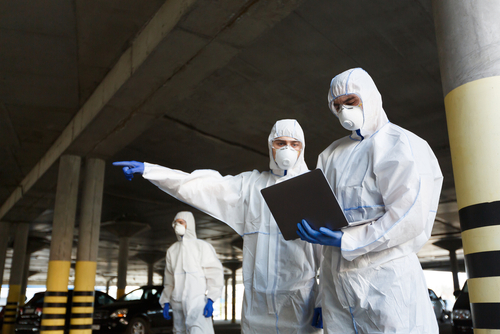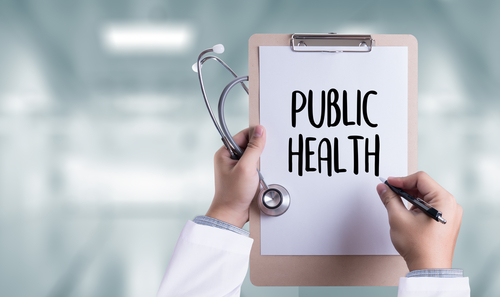Featured Video on MPH Degree Programs:
What Is an MPH Degree?

What does MPH stand for? The Master of Public Health (MPH degree) and the Doctor of Public Health (DrPH) are multi-disciplinary professional degrees awarded for studies in areas related to public health. The MPH degree focuses on public health practice, as opposed to research or teaching. Master of Public Health programs are available throughout the world in:
- Medical Schools
- Schools of Public Health
- Schools of Public Affairs
Can I Earn a Master of Public Health Degree Online?

Students may pursue an MPH degree online. An online MPH program gives students the flexibility to earn their degree on their own time. Online public health programs allow students to maintain a healthy work/life/school balance. An online MPH program is every bit as rigorous as a traditional brick and mortar program. Online students are expected to:
- complete assignments
- listen to or participate in lectures
- engage with faculty and peers in a virtual setting
What Can I Expect to Study While Earning an MPH?
When studying for an MPH degree, students develop an integrated interdisciplinary, cross-cutting set of overall competency domains in areas like:
- Communication and Informatics
- Diversity and Culture
- Leadership
- Professionalism
- Program Planning
- Public Health Biology
- Systems Thinking
A newly developing specialty within the MPH degree is Occupational Health Nursing.
What Are the Requirements to Pursue an MPH?
In the United States, anyone with an accredited undergraduate degree may pursue an MPH degree or MSPH. Based on the accreditation of the Council on Education for Public Health (CEPH) an MPH or MSPH is not a clinical degree.
Public health education requirements are different in countries outside the US. In some countries the MPH degree program is only available for medical graduates (MBBS or equivalent). Those without a medical degree can join the Master of Science in Public Health (MSPH) program. The MSPH degree is an academic public health degree rather than a professional public health degree. The MSPH is more research-oriented than the MPH program.
Required MSPH coursework includes most of the same classes needed for the MPH degree, but in addition the MSPH degree requires additional research coursework such as research methods. Also, MSPH students must complete a research thesis/project of publishable quality. The extra coursework roughly requires an additional year of study in relation to what is required for the MPH degree. In the UK the MPH degree is not widely available; an MSc in the field of public health (generally one year’s full-time study) may be the nearest equivalent.
The DrPH degree is for those who intend to pursue or advance a professional practice career in public health. It is also a great choice for leaders and future leaders in public health practice. They face the particular challenge of understanding and adapting scientific knowledge in order to achieve health gain and results. This degree leads to a career in areas like:
- high-level administration
- teaching
- practice where advanced analytical and conceptual capabilities are required
The usual requirement for entry into this program is an MPH. The DrPH program develops in its candidates all competencies included in MPH programs, with increased emphasis on high level skills in problem-solving and the application of public health concepts.
How Long Does It Take to Earn an MPH?

A traditional master’s degree program takes two years of full-time study to complete. While there are plenty of traditional MPH programs, there are also programs which offer flexible scheduling that allow for a shorter or longer time to complete.
Accelerated programs are available to students who want to earn their degree in 12 to 18 months. These programs are extremely rigorous. These programs are ideal for students who don’t want to wait to begin their careers. Students can also save money since they can begin working full time in the field quicker.
Part-time MPH programs are also available. Part-time programs are a great choice for students already working in the field who don’t have the time to work and attend school full-time. They can take one course at a time, balancing school with other obligations. These programs typically take three to four years to complete.
How Much Can I Make with an MPH Degree?
The salary potential for an MPH degree can vary considerably depending on factors like:
- your specialization
- work experience
- geographic location
- organization you work for
While the Bureau of Labor Statistics doesn’t provide information on an MPH specifically, they do provide salary information on some of the most common MPH jobs. These include:
- Health Education Specialists and Community Health Workers: $48,860/year
- Epidemiologists: $78,830/year
- Medical and Health Services Managers: $101,340/year
Payscale.com reports the average base salary someone with an MPH can expect is about $70,000/year.
MPH Career Options

The traditional MPH degree is designed to expose candidates to 5 core discipline areas of public health:
- Biostatistics
- Epidemiology
- Environmental Health Sciences
- Health Policy and Management
- Social and Behavioral Sciences
Biostatistics
Public health practitioners who focus on biostatistics study health trends and risk factors using quantitative and qualitative research. Biostatistics are applied statistics used in medical science and biology for public health purposes. Using biostatistics, public health professionals can better understand the causation and spread of disease. During a disease outbreak, biostatistics can be valuable in understanding the direction of an epidemic or pandemic.
Epidemiology
According to the Center for Disease Control (CDC), “Epidemiology is the study of the distribution and determinants of health-related states or events in specified populations, and the application of this study to the control of health problems.” Epidemiologists study disease and how it spreads with the intention of limiting negative health problems. They are also concerned with health concerns like non-infectious disease, injuries, and foodborne illness. Epidemiologists conduct research and communicate their findings with key stakeholders. They identify patterns and causes of negative health outcomes.
Epidemiology is a lucrative career. The Bureau of Labor Statistics (BLS) reports that the median pay for an epidemiologist is $78,830/year. The BLS anticipates a 26% growth rate through 2031 which is much faster than average.
Environmental Health Sciences
According to the American Public Health Association, environmental health is the branch of public health that:
- promotes human health and well-being
- fosters healthy and safe communities
- focuses on the relationships between people and their environment
There are three main types of environmental health:
- health impacts
- air quality
- water and sanitation
Environmental health professionals conduct research, evaluate risks, and respond to emergency. They study how environmental factors affect health. Environmental health leaders are responsible for making policy and programming recommendations that impact the field of public health.
Health Policy and Management
Health policy and administration is a popular area of public health. Many people return to school to earn their MPH because they want to become health services administrators or be involved in health policy. These public health programs emphasize areas like population focused management and evidence based public health. Graduates can find employment opportunities in a variety of settings including:
- government agencies
- nonprofits
- health care systems
- consulting
These MPH programs focus on areas like implementing and managing public health programs or managing outbreaks. Dual degree programs are often available for MD/MPH or JD/MPH students interested in public health.
Social and Behavioral Sciences
An MPH in social and behavioral sciences gives professionals the knowledge and training they need to address behavioral and social factors that impact public health. They focus on health promotion and illness prevention on an individual and systemic level. They might use their public health degree to help reduce health disparities or promote positive health outcomes in a variety of different populations.
Other Areas of Public Health
Public Health Nutrition
Public health nutrition is a specialized area of public health that combines nutrition with the social and behavioral sciences to develop and implement programs that promote optimal nutrition. These programs focus on:
- nutrition science
- analytical skills
- policy and leadership skills
- cultural competency
MPH/MD
Some medical doctors seek an MPH credential. This joint degree provides medical professionals with the skills to approach healthcare from a community perspective. This richer learning experience is a great choice for doctors planning to work in the public health field.
Maternal and Child Health
Maternal and child health (MCH) is a branch of public health that focuses on the well-being and health outcomes of women during:
- pregnancy
- childbirth
- the postpartum period
It also focuses on the health and development of children birth through age 18. Key components include:
- Prenatal Care: MCH is concerned with the health services provided to pregnant women to ensure a healthy pregnancy and address any potential complications.
- Safe Delivery and Postpartum Care: MCH emphasizes safe delivery practices and skilled attendance at childbirth. It also prioritizes postpartum care to promote recovery.
- Child Health and Development: MCH addresses the healthy growth and development of children of all ages. It includes preventative services such as immunizations and nutrition support. It also includes developmental screenings and the management of any identified health conditions.
- Family Planning and Reproductive Health: MCH promotes access to family planning services.
- Health Promotion and Education: Health promotion and education efforts are aimed at empowering individuals to make informed decisions about their health. This includes information about nutrition, breastfeeding, and child safety.
- Health Equity and Eliminating Disparities: Vulnerable populations are susceptible to health disparities. MCH strives to reduce barriers to healthcare access and advocates for policies that promote equitable outcomes.
Health Education
Health Education is an area of public health focused on promoting health and preventing disease through education. Health education practitioners develop and implement strategies and interventions to encourage healthy behaviors. Programs might include:
- tobacco cessation
- safe sex practices
- healthy eating
- physical activity
Health educators work with the community to understand their health needs from a cultural context. They build partnerships and involve community members in the creation and implementation of health education initiatives. They may develop and distribute health communications through social media or community events, promoting community awareness.
Health educators also conduct needs assessments to help determine the specific health education needs of their community. They might do this through surveys or focus groups. Health educators also participate in program planning and evaluation to gauge effectiveness of the services they are providing.
Conclusion

MPH programs prepare students who want to run community health facilities, state organizations, NGOs, and international health efforts, as well as oversee nursing departments. An MPH can also prepare a public health practitioner for a PhD in a variety of areas including:
- Health Services Research
- Clinical Research
- Biostatistics
We have listed the top 50 highest paying public health jobs to further help Master of Public Health degree students learn more about potential career paths.